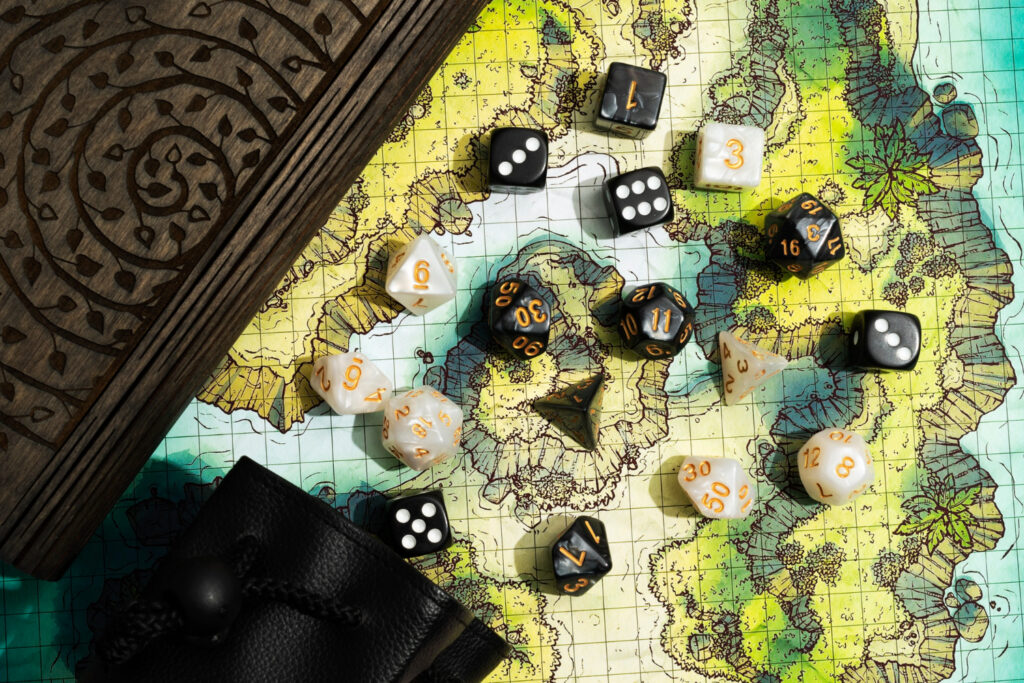the history and cultural significance of board games have greatly enhanced human civilization by reflecting changes in social mores, scientific advancements, and inventiveness. This talk explores the fascinating history of board games, following their evolution from their ancient origins to the beloved classics that enthrall modern enthusiasts.
Primeval Inceptions: The Genesis of Board Games
Senet: The Pharaohs’ Amusement
Senet is one of the earliest board games humans knew of, going back to the days of Egypt about 3100 BCE. Its enormous importance in Egyptian culture is shown by objects and boards found in the tombs of the pharaohs.. Far beyond mere diversion, Senet embodied spiritual symbolism, mirroring the soul’s voyage into the afterlife.
Royal Game of Ur: Mesopotamian Bequest
Historians remain to be intrigued with the Royal Game of Ur, which began in the birthplace of Mesopotamia in 2600 BCE. This game, which used three tetrahedral dice and two sets of seven tokens each, was discovered during excavations in the royal tombs of Ur.. It demanded strategic prowess akin to modern chess, emphasizing tactical foresight and cunning.
The Medieval Epoch: Chess’s Ascent and Other Classics
Chess: Regal Cerebration
In 6th century within India’s borders and chess was initially dubbed Chaturanga.. Moving to Persia, it changed into Shatranj and then moved to Europe, where royalty fell in love with it. The game’s emotional difficulty and deep strategic depth contribute to its evergreen appeal.
Nine Men’s Morris: An Old-Time Interest
Nine Men’s Morris, a favorite pastime in Europe throughout the Middle Ages, with roots in the rule of Rome. the goal of the game To make’mills’ of three aligned pieces was , which was played on a board with intersecting lines.The game’s elegant simplicity, coupled with tactical depth, ensured its popularity across medieval hamlets.
Novelty and Innovation in the Renaissance and Enlightenment
Backgammon: Mixing Luck and Strategy
Starting in the Roman Ludus Duodecim Scriptorum, backgammon started to take on its current shape by the 17th century. Encapsulating the intellectual curiosity and desire for knowledge of the Enlightenment, the marriage of chance and strategy gained appeal in European coffeehouses.
The Estate of Happiness: How American Board Games Started
initial board game in America belongs to “The Mansion of Happiness,” which appeared in 1843. With its guidance of virtues and vices, it echoed the moral attitude of the day. By embedding educational motifs, it laid the foundation for future American board games.
The Twentieth Century: The Board Game’s Golden Era
The Economics of Entertainment in Monopoly
In the 1930s, during the Great Depression, Monopoly first appeared and quickly became quite popular. Players were given relief from financial hardships via its mechanisms, which were based on property purchase, trade, and development. With several editions and themed versions, Monopoly continues to be one of the most popular board games in the world.
Scrabble: The Lexical Challenge
Alfred Butts invented Tiles in 1938 as a way for combining crossword clues and grams. Using letter tiles—each worth a point—players build words. With a global following, Scrabble has assisted people across the world acquire their linguistic and strategic skills.
Risk: The Art of Global Domination
Competing for global rule, Risk is a game of diplomacy and conquest that made its debut in 1957. Modern strategy games have evolved because of their appeal among board game fans and emphasis on strategy and negotiation.
The Modern Epoch: A Renaissance of Innovation
Settlers of Catan: Eurogames’ Vanguard
With its 1995 release, Settlers of Catan introduced resource management and trade dynamics, ushering in a new era in board game. Due to popularity, the Eurogame genre which is renowned for its strategic nuance, interactive gameplay, and low dependence on luck was born.
Pandemic: Collaborative Approach
When Pandemic released in 2008, it brought cooperative gaming to the world, where users work together to stop global diseases. This innovative method has promoted cooperation and group problem-solving through the inspiration of innumerable cooperative board games.
The Digital Revolution: Board Games’ Online Evolution
With the digital age’s advent, board games have transcended physical confines, fostering online connectivity. Digital platforms and applications have democratized access to both classic and contemporary board games, expanding communities and enriching the gaming milieu.
Conclusion
the history and cultural significance of board games, a testament to human ingenuity, have traversed epochs and cultures, evolving from primeval relics to contemporary treasures. They reflect societal ethos, challenge intellects, and nurture social bonds. Board games will continue to attract future generations as innovation creates new experiences, inextricably tying their allure into the story of humanity.
FAQs
Which historical board games are among of the oldest known to exist?
Go from China, the Royal Game of Ur from Mesopotamia, and Senet from ancient Egypt are a few of the oldest board games known to history.
What changes have chess made over the ages?
Known for its intricate strategy, chess began as Chaturanga in India, developed into Shatranj in Persia. Thenfinally became a mainstay among European aristocracy.
What keeps Monopoly so popular throughout the years?
The eternal appeal of Monopoly is attributed to its unique combination of economics, strategy, and chance, as well as its relevant themes.
How have digital platforms influenced board gaming?
Digital platforms have broadened the reach of board games, enabling global connectivity and enriching social interaction.
What role do cooperative video games like Pandemic play?
Playing cooperative games, such as Pandemic, encourages players to work together to achieve common goals and adds a fun element to board games.
